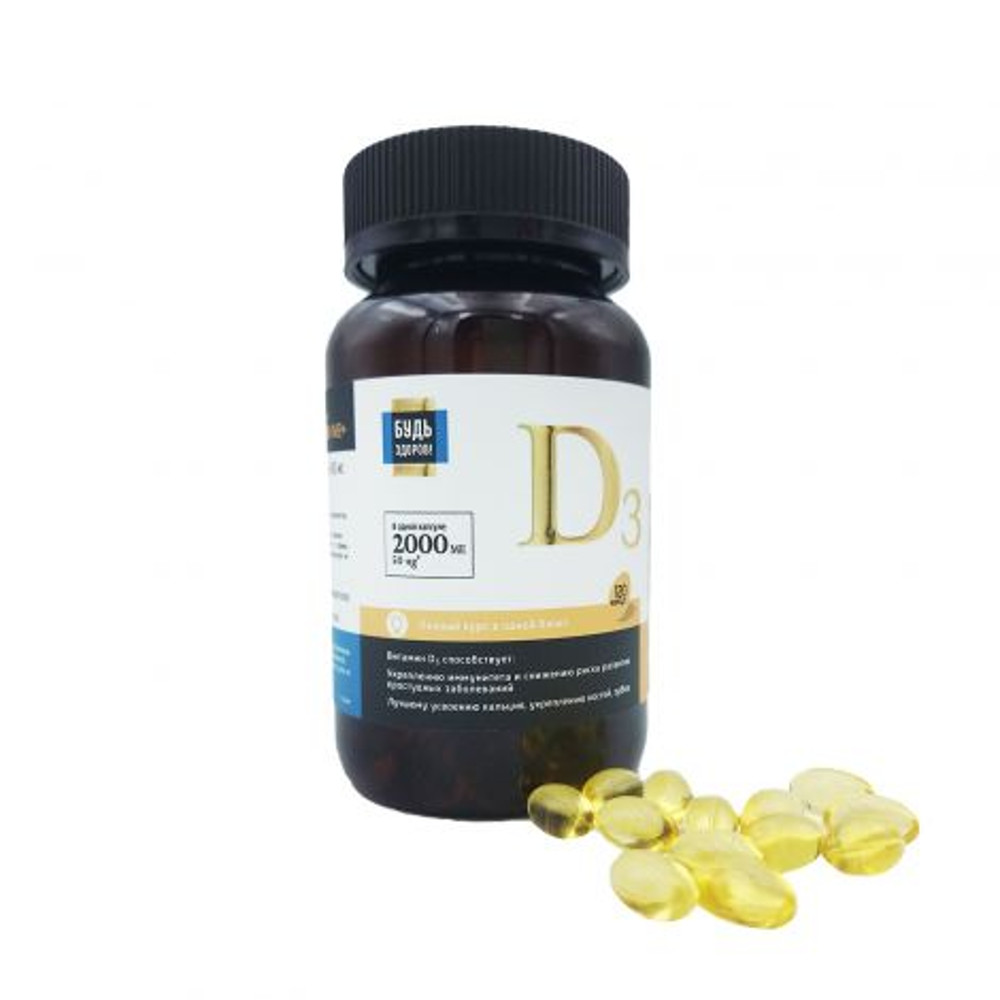Vitamin D3 2000ME capsules 120 pcs.
Shipping Type:
Quantity
Composition
Vegetable oil (olive), shell (gelatin, glycerin (thickener), water), vitamin D3 (cholecalciferol), a mixture of tocopherols (antioxidant).
The content of active ingredients in 1 capsule: Vitamin D 2000 IU
Method of administration and dosage
Adults take 1 capsule a day with meals.
Duration of admission: 2-3 months. If necessary, the reception can be repeated.
Precautions
Individual intolerance to the components of the product, pregnancy, breast-feeding.
It is recommended to consult a doctor before use.
Dietary supplements are not a medicinal product.
Indications for use
It is recommended as an additional source of the active form of vitamin D - cholecalciferol.
Product Description
Be healthy! "Vitamin D3" is recommended as a biologically active food supplement - a source of vitamin D3.
- 1 capsule contains 2000 IU (50 mcg) of vitamin D3. Vitamin D3 (cholecalciferol) is a bioavailable and effective form of vitamin D3 that participates in the activity of almost all organs and systems of the human body. Vitamin D3 helps to support immune, nervous and reproductive functions, helps strengthen teeth and bone tissue, and helps to increase the energy potential of the body. It participates in the regulation of innate immunity, and its deficiency significantly reduces the effectiveness of the immune response to viruses, bacteria and infections.
Who is recommended to take biologically active vitamin D supplements:
- people who receive insufficient sunlight;
- people who adhere to vegetarianism, since they do not eat foods containing vitamin D3 - meat, fish, egg yolks, dairy products;
- elderly people (over 65 years old), since the process of assimilation of vitamin D from food decreases with age, age-related skin has fewer receptors that transform sunlight into vitamin D and limited exposure to sunlight affects;
- overweight people (body mass index over 34);
- people at risk of developing type 2 diabetes.
Vitamin D deficiency can be caused by:
- living in the northern temperate zone (above 42 degrees north latitude - the entire territory of Russia);
- limited exposure to the sun;
- eating meat of animals that have grown up on a farm and have not received enough sunlight;
- pregnancy;
- overweight;
- using protective creams;
- a diet with vitamin D deficiency, milk allergy;
- lactose intolerance, refusal of meat, fish and other animal protein;
- chronic diseases (obesity, intestinal pathology, etc.).



